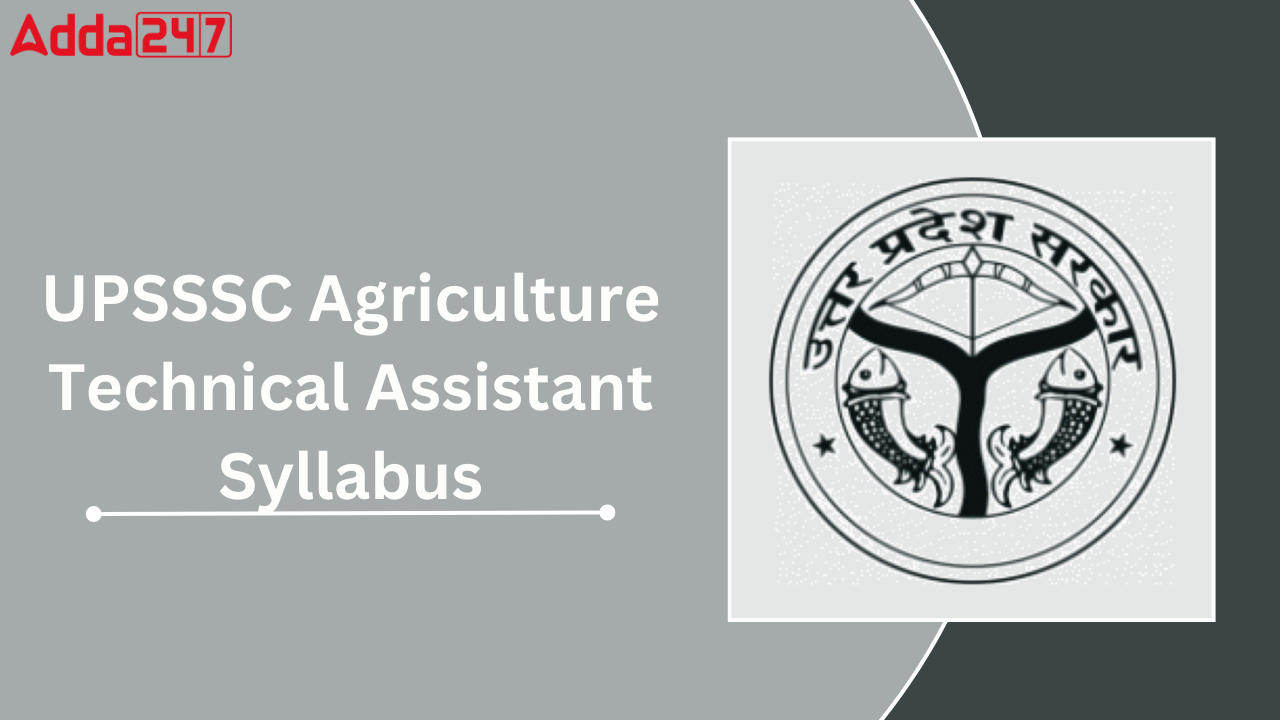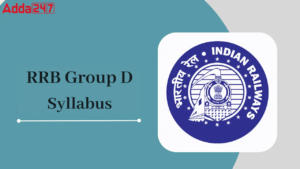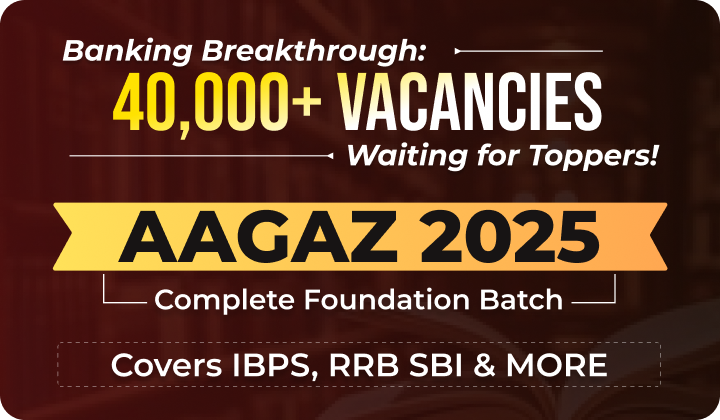Table of Contents
UPSSSC Agriculture Technical Assistant Syllabus 2024
The Uttar Pradesh Subordinate Selection Services Commission is soon going to conduct the UPSSSC Agriculture Technical Assistant Exam 2024 for which the UPSSSC Agriculture Technical Assistant Syllabus and the Exam Pattern have been discussed in the article below. Candidates interested in joining the Uttar Pradesh Agriculture Technical Assistant (Group C) post can start their preparation now with the help of the syllabus provided in this article below along with the exam pattern. You can also download the Syllabus PDF from the link provided below.
UPSSSC Agriculture Technical Assistant Selection Process
Applicants should be aware of the selection procedure, syllabus, and exam pattern to prepare for the UPSSSC AGTA 2024 exam. Candidates will have a better understanding of the number of stages they must pass to be considered for Agriculture Technical Assistant positions if they are aware of the Selection Process. Two steps make up the selection process:
Stage 1: Written Examination- It consists of 100 questions along with 0.25 of negative marking.
Stage 2: Document Verification- Only candidates who passed the Written Examination will be forwarded to this stage.
UPSSSC Agriculture Technical Assistant Exam Pattern 2024
Knowledge about the UPSSSC Agriculture Technical Assistant Exam Pattern is important for the candidates who will attempt the UPSSSC Agriculture Technical Assistant Exam 2024.
- The UPSSSC Agriculture Technical Assistant Exam 2024 will be an Objective Type Exam(Multiple-choice questions).
- The exam will be a of total 100 marks.
- There will be negative marks this time, 1/4th of marks will be deducted for wrong answers.
- The exam will be held for 2 hours.
| Part | Subject | No. of Questions | Marks | Duration |
|---|---|---|---|---|
| Part 1 | Crop Science | 25 | 10 | 2 hours (120 Minutes) |
| Biotechnology, Plant Breeding, and Crop Physiology | 10 | 10 | ||
| Soil and Water Conversation | 15 | 15 | ||
| Agriculture Extension | 05 | 05 | ||
| Agriculture Economics and Schemes | 05 | 05 | ||
| Diary and Animal Husbandry | 05 | 05 | ||
| Part 2 | Knowledge of concepts of Computer and Information Technology and contemporary technological development and innovation in this field | 15 | 15 | |
| Part 3 | General information related to the state of Uttar Pradesh | 20 | 20 | |
| Total | 100 | 100 | ||
UPSSSC Agriculture Technical Assistant Syllabus
The UPSSSC AGTA Syllabus is divided into 3 parts.
Part 1: Subjects include Crop Science covering Biotechnology, Plant Breeding, and Crop Physiology, as well as Soil and Water Conservation, Agriculture Extension, and Agriculture Economics and Schemes, along with topics related to Dairy and Animal Husbandry.
Part 2: Encompasses knowledge of concepts in Computer and Information Technology, along with contemporary technological developments and innovations in this field.
Part 3: It is all about general information related to the state of Uttar Pradesh. Check the detailed UPSSSC Agriculture Technical Assistant Subject-Wise Syllabus below.
UPSSSC Agriculture Technical Assistant Subject-Wise Syllabus
The UPSSSC Agriculture Technical Assistant Syllabus is given below, candidates have started their preparation for the exam according to the syllabus. There will be five subjects in the examination i.e. General Hindi, General Intelligence, General Knowledge, General Science, and Arithmetics, and topics which are important for the examination are given below.
Part 1
1. Crop Science
- Classification of crops, major cereals, pulses, oilseeds, millets, fibber cash crops, spices and fodder, fruits, flowers, and vegetable crops are grown in the State and major crop production techniques and agro practices.
- Post-harvest management of produce.
- Fruits and vegetables preservation and processing.
- Principles of crop rotation, cropping pattern, and types of farming like dry farming, integrated farming, natural farming, mono-cropping, multiple cropping, intercropping, and types and importance of organic farming, its socio-economic importance/use.
- Importance of Seed, types of seeds, and their production methods.
- Method of Seed treatment and its importance.
- Basic principles, scope, and importance of crop protection, name of major equipment and chemicals used in pest control, integrated pest management.
- Insect, pest, and diseases of major crops and their management.
- Principles and Systems of produce storage, and factors affecting the quality of produce and storage & its management.
2. Biotechnology, Plant breeding & Crop physiology
- Importance and utility of Biotechnology in agriculture.
- Principles, use, and importance of Genetics & Plant Breeding.
- Photosynthesis, Respiration, Evaporation, Plant Anatomy and Metabolism.
3. Soil and Water Conservation
- Properties and components of soil, the process of soil formation, types of soil erosion, and its conservation techniques.
- Essential nutrients found in soil, role, and associated deficiency symptoms.
- Classification of fertilizers, their nutrient content, and methods of application.
- Integrated nutrient management, types, importance, and role of organic fertilizers/bio-fertilizers.
- Soil microbiology and its major role in crop production.
- Soil survey, methods of soil sampling, and soil conservation techniques.
- Source, method, and importance of Irrigation.
- Basic concepts & methods of Drainage.
- Watershed Management.
- Types of pollution and environmental protection.
4. Agriculture Extension
- Principles of agriculture extension and rural development.
- Extension methodologies, audio-visual aids, classification, and their importance.
- Training: objectives, importance, and its types.
- Different programs and schemes of the Govt. of India and State Govt. run for the welfare of farmers and rural development.
5. Agriculture Economics & Schemes
- Role of agriculture in the One trillion economy of the U.P.
- Economic reforms in the Agriculture sector.
- Concept of import and export of agricultural produce.
- Formulation of plans for Agriculture.
- Principles of Agricultural Statistics.
- Principles and importance of agricultural economics.
- MSP of different crops.
- Agricultural Marketing.
6. Dairy & Animal Husbandry
- Different Breeds of domestic animals & feed management.
- Objectives and methods of animal breeding. Milk production and its distribution.
- Basic knowledge of Poultry farming, Fish farming, Apiculture, and Seri culture.
- Major diseases of domestic animals, diagnosis and treatment.
Part 2
Knowledge of Concepts of Computer and Information Technology and Contemporary Technological Development and Innovation in this field:
- History, Introduction and Application of Computer, Information Technology, Internet and World Wide Web (WWW).
- General Knowledge related to:
1. Hardware and Software
11. Input and Output
III. Internet Protocol/IP Address
IV. IT gadgets and their application
V. Creation of e-mail ID and use/operation of e-mail VI.Operation of Printer, Tablet, and Mobile
VII.Important elements of Word Processing (MS-word) and Excel Processing (MS-Excel)
VIII.Operating System, Social Networking, e-Governance - Digital Financial Tools and Applications
- Future Skills and Cyber Security
- Technological Development and Innovation in the field of Computer and Information Technology (Artificial Intelligence, Big Data Processing, Deep Learning, Machine Learning, Internet of Things) and India’s achievements in this field, etc.
Part 3
General Information Related to The State of Uttar Pradesh:-
In this Part of the question paper, questions based on History, Culture, Art, Architecture, Festivals, Folk Dance, Literature, Regional Languages, Heritage, Social Customs and Tourism, Geographical Landscape and Environment, Natural Resources, Climate, Soil, Forest, Wildlife, Mines and Minerals, Economy, Agriculture, Industry, Business and Employment, Polity, Administration of Uttar Pradesh and Current Events and Achievements of Uttar Pradesh State in various fields etc. will be asked from the candidates.
You can also download the PDF of the UPSSC AGTA Syllabus directly from the direct link provided below.
How to prepare for UPSSSC AGTA
The Uttar Pradesh Subordinate Service Selection Commission (UPSSSC) started accepting applications for the UPSSSC AGTA Recruitment. What strategy should applicants currently follow to ace the UPSSSC exam in 2024? Recognizing your advantages and disadvantages is important first. Once a plan has been set up, try to stick to it.
Also, Check:




 IBPS RRB Syllabus 2025, Exam Pattern (Pr...
IBPS RRB Syllabus 2025, Exam Pattern (Pr...
 RRB Group D Syllabus 2025, Subject Wise ...
RRB Group D Syllabus 2025, Subject Wise ...
 IBPS RRB PO Syllabus 2025, Prelims and M...
IBPS RRB PO Syllabus 2025, Prelims and M...






